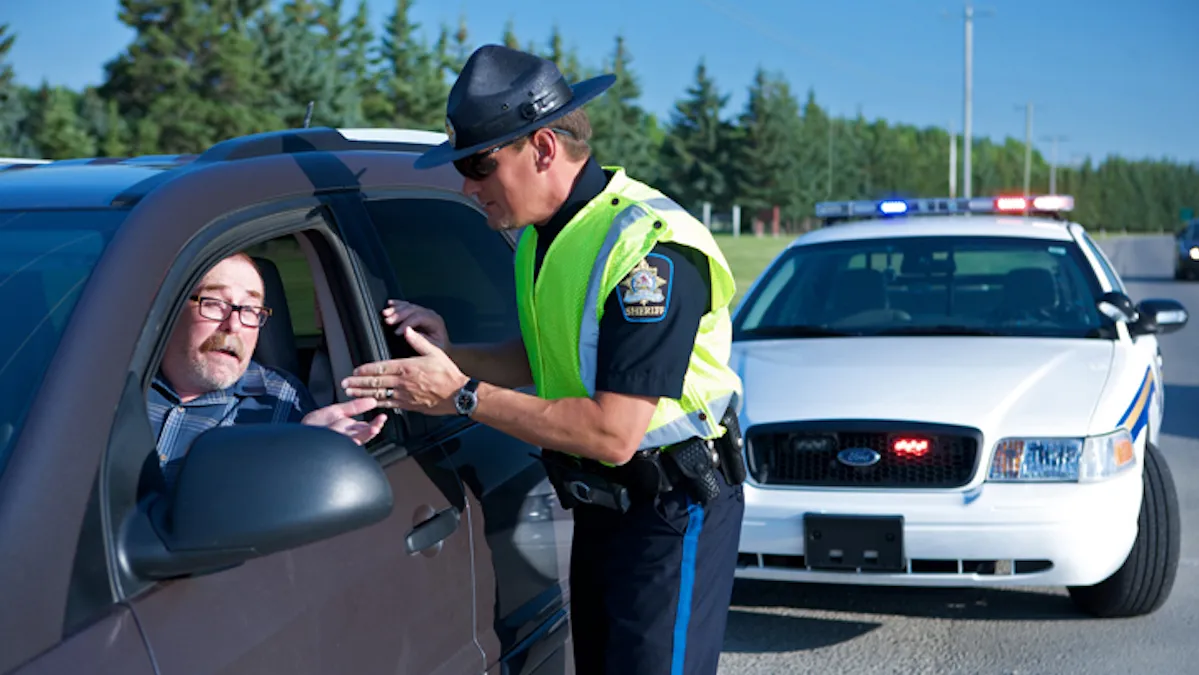Despite media coverage Thursday about a group of Alberta Sheriffs Branch officers who say they’d like to break away from the Alberta Union of Provincial Employees (AUPE) and form their own union, that could not happen without support from the United Conservative Party (UCP).
Which makes the announcement by the group calling itself the Sheriff Branch Officers Association, which said in the news release picked up by The Edmonton Journal that it hopes to “attain recognition as a union,” a potentially significant political story.
After all, the Sheriffs Branch has long been touted as the agency the UCP would like to use as the core of the “Alberta Rangers,” the provincial police force that nobody in Alberta seems to want except the party’s Take Back Alberta faction and the sovereignist political advisors who have the ear of Premier Danielle Smith.
So it’s possible there was more to this than a few officers disaffected with their union running a wild idea up the flagpole to see if anyone saluted when the association announced its launch on Thursday in a news release sent to media by Alberta Counsel, an Edmonton-based legal and lobbying firm co-founded by lawyer Shayne Saskiw, who was the Wildrose Party’s executive director and later the MLA for Lac La Biche-St. Paul-Two Hills during the time Smith led that party.
“We extend an invitation to the Alberta Government to collaborate with us in forming a union that genuinely represents and advocates for the needs of our officers,” said association president Dornubari Tornwe in the news release.
The release and the news coverage based on it, however, did not mention the most significant roadblock faced by the association’s supporters – the fact the Public Service Employee Relations Act states in section 10 that “the employees of the Crown in right of Alberta constitute a single bargaining unit.”
AUPE is deemed to be the bargaining agency for that single bargaining unit in section 74 of the act.
Aside from a list of management and other employees excluded from membership in any union, all direct employees of what most Albertans would think of as the provincial civil service are members of that single bargaining unit. This includes Alberta Sheriffs Branch officers, as well as Correctional officers, Probation officers and Fish and Wildlife officers also represented by AUPE.
Moreover, based on its past rulings, it’s extremely difficult to imagine the Alberta Labour Relations Board considering such an idea without a change in the legislation.
Given that, it’s hard to see how the Sheriffs’ group could form a breakaway union without a vote of the Legislature to amend the legislation – which would inevitably result in a vigorous public debate and have the additional potential to create unintended complications for the government in other public-sector bargaining.
Such a change would likely also be of concern to the National Police Federation, the sole certified bargaining agent for members and reservists of the Royal Canadian Mounted Police below the rank of inspector, and unions representing the Calgary and Edmonton police services, where Sheriffs Branch officers are already doing their members’ bargaining unit work for less pay on the streets of the province’s two largest cities.
But that’s why the association retained Alberta Counsel, Tornwe said Saturday, pointing to the Edmonton-based firm’s role in the creation of the Alberta Union of Nurse Practitioners, which happened after the UCP government created a special small public-sector health care bargaining unit, membership in which was restricted to Nurse Practitioners.
“They do have a strategy,” said Tornwe, a former vice chair of the Sheriffs Officers’ section of the AUPE local that represents government employees who work law-enforcement related occupations. He was also a candidate for the Conservative Party of Canada nomination in the federal Edmonton Griesbach riding, now represented by NDP MP Blake Desjarlais, but dropped out of the contest a month ago.
Tornwe suggested the Sheriffs Officers’ association might try to persuade the government that its members should qualify under the same section of the act that excludes members of professional associations such as doctors, dentists, architects, engineers and lawyers employed directly by the government from membership in any union. How that would help a group with ambitions to be a union, however, is not clear.
Meanwhile, Tornwe said, his group can argue that a survey done for the association shows Alberta’s 1,400 Sheriffs Branch officers would overwhelmingly prefer their own union, and are unhappy that their pay significantly lags that of Edmonton and Calgary police officers, Mounties, and even Edmonton Transit peace officers.
He said about 200 officers signed up to join the association on its website, which was also posted online by Alberta Counsel, in the first two days after the group’s launch.
The scope of work done by Sheriffs Branch officers has grown dramatically over the years and is now comparable to the work done by members of other police forces, Tornwe argued.
AUPE has not yet provided a response, but it can be assumed the province’s largest union will vigorously oppose any effort to persuade the Labour Relations Board to allow a group of public service members to break away in defiance of legislation and standard labour relations practice.



